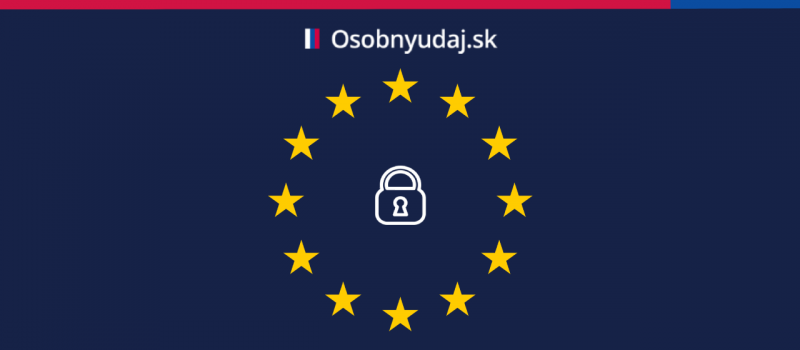Fairness and transparency are the principles of personal data processing

Fairness and transparency are the principles of personal data processing
By what other way, if not by transparent regulations, citizens' credibility in processing personal data can be increased? It is precisely the transparent and fair regulations introduced by GDPR that are intended to increase the protection of the customer when providing personal data. So, how is transparency in the handling of personal data guaranteed?
Specific and clear communication
Information on the processing of personal data must be clear, understandable and transparent.
Business entity (web, e-commerce, seller ...) must provide information about the processing of personal data in the simplest form.
As per Article 12 of the GDPR, the information shall also be:
- Concise, transparent, understandable and easily accessible.
- In written or electronic form. At the request of the data subject, consent may be given orally.
- Consent must be free of charge.
Form of consent
As we mentioned, there are more ways to provide this data processing information. The first one is, for example, signing a contract or checking the box when registering. They may also be pop-ups on websites that need to be confirmed. However, the entity itself may request another type of verification of its consent. It may be an oral form (telephone) or personal contact. In addition, specific applications may include camera recordings, QR codes, video alerts or SMS or email.
Announcing at the right time
The timeframe in which the personal data of the data subjects are manipulated is also a condition for the transparent processing of personal data. The whole process begins at the moment before or at the moment of processing, gathering such information. In terms of time, information on the processing of personal data must therefore be provided before or at the moment when the personal data were obtained (filling in the form). If this information is captured indirectly, obtained from other sources, information on the collection of personal data must be provided within one month at the latest. However, the time is usually shorter and begins when the data subject is first contacted. It should be noted that if the processing of personal data is ongoing, the controller should repeatedly inform the entities of the scope and reason for the processing of personal data.
Obligations of the controller and possible exemptions
Each coin always has two sides, and so it with new GDPR policy too. What does the controller have to do and what can he do?
- It shall provide the data subject with information on his or her rights. The data subject must allow these rights to be exercised as easily as possible and all procedures should be proportionate in the relationship between the controller and the data subject.
- When obtaining information directly, the controller must clearly demonstrate and substantiate what information it received from the data subject, when it was received, and at the same time demonstrate that it has not been altered. The controller must ensure that the information is up-to-date and complete.
- Certain exceptions may apply to indirect acquisition. The obligation to provide data does not arise from the rule if it is proved that such provision is not possible. By this we mean cases such as archiving, statistical purposes or historical research. The same is true if the granting of the grant would require a disproportionate effort and would jeopardize or hinder their processing.
Vyhľadávanie
Most read articles
Categories
Recently added articles
Popular tags
Contact form
Preparation of Security Documentation in terms of GDPR from 139€ with insurance.
- Infoline:
- E-mail:
osobnyudaj.sk, s.r.o. Námestie osloboditeľov 3/A,
040 01 Košice
Non-binding free quote
from € 139 with insurance
We have provided services
to more than
11 500 clients
Questions and answers
Dear client, if you have not found
what you are looking for, do not hesitate
to contact us.
-
What is GDPR?
-
General Data Protection Regulation (GDPR) is the acronym for Regulation…
Find out more
-
-
Who is affected by the GDPR?
-
It applies to all persons processing personal data and any…
Find out more
-
-
What changes come with the GDPR?
-
The fundamental changes of the GDPR include: compulsory appointment of…
Find out more
-
-
Who is Data Protection Officer (DPO)?
-
All organizations processing personal data must count on the appointment…
Find out more
-
-
What happens if I do not comply with GDPR?
-
In the event of a breach of the GDPR regulation,…
Find out more
-
-
How can we help you?
-
Osobnyudaj.sk, s.r.o. is the largest provider of personal data protection…
Find out more
-
-
What are advantages of working with our company?
-
personal visits throughout the Slovak Republic are a matter of…
Find out more
-
-
What is personal data?
-
For the purposes of the GDPR, all information relating to…
Find out more
-
-
Who is Data Protection Officer?
-
All organizations processing personal data must count on the appointment…
Find out more
-




